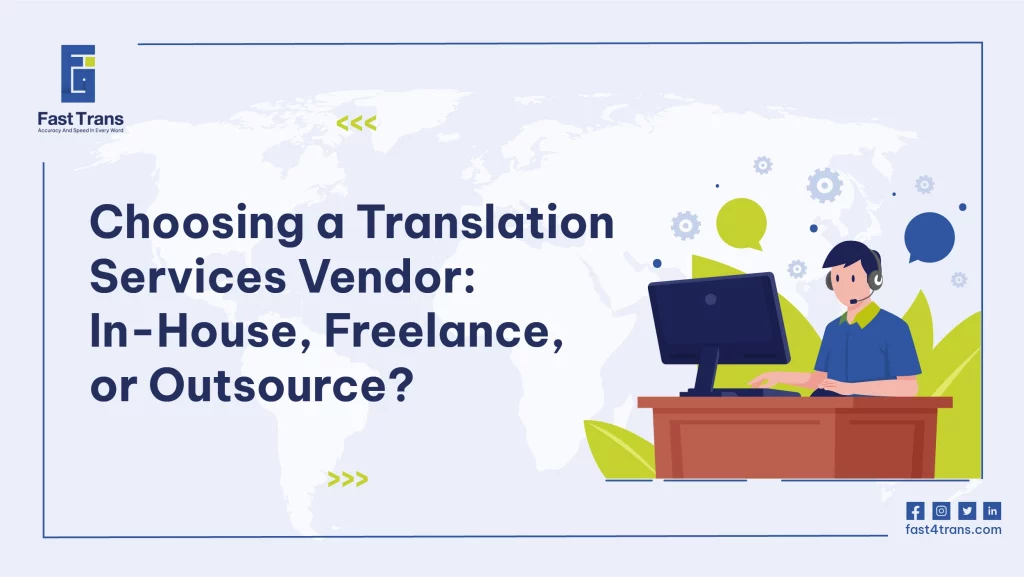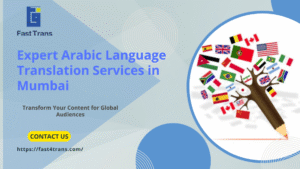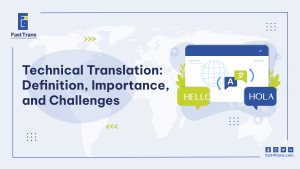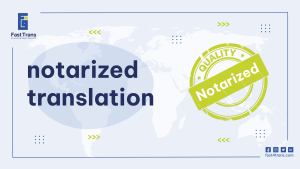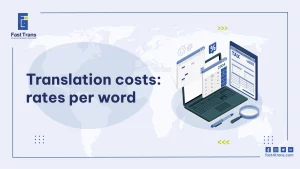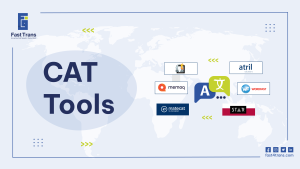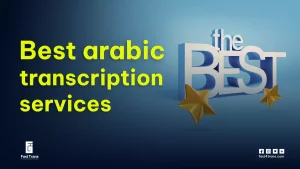Arabic Translation Services Vendors are essential across industries like government, legal, gaming, media, and business, enabling seamless communication and localization for diverse audiences. These services ensure accurate legal documents, tailored marketing strategies, and user-friendly gaming experiences.
Whether handled in-house, by freelancers, or outsourced to language service providers (LSPs), Arabic translation helps businesses navigate multilingual markets and enhance brand identity. By offering flexibility, cost-effectiveness, and specialized expertise, these services support everything from official documents to localized content, ensuring relevance in Arabic-speaking regions.
Who Needs Arabic Translation Services Vendors?
Arabic translation services are essential for sectors like government, law, gaming, media, and business, enabling effective communication across diverse languages and regions. These services ensure accurate legal documentation, localized gaming experiences, and culturally relevant marketing strategies.
1. Government sector
Governments rely on translation for sustaining diplomatic relations like immigration. It also handled all legal and governmental documents. It also plays a vital role in making legislative documents accessible to all citizens, especially in multilingual regions. It allows governments to provide public services, such as healthcare and education, to diverse populations.
2. Legal Field
The legal field relies heavily on translating several kinds of documents like contracts, agreements, court documents, bank statements, birth certificates, marriage certificates, patents…and plenty of others. Moreover, intergovernmental organizations like the United Nations need to translate their documents in order to spread their mission and goal to the rest of the world.
3. Gaming Field
Nowadays video games encounter lots of translation and localization processes, especially for internationalized games, or those made accessible in several countries. Game localization ensures a user-friendly experience. The process is not as simple as it might sound, sometimes it involves localizing names, settings, and other significant parts of the game narrative to make it resonate with a local audience.
Read more: Localization Glossary
4. Media and Film
The same goes for all kinds of audiovisuals. Imagine an international streaming service like Netflix launched in plenty of countries around the world, it wouldn’t have survived without subtitling and localization services.
5. Technical Industries
By technical I’m referring to any industry that requires specialized knowledge, like the medical and pharmaceutical field, manufacturing, engineering field…etc. Technical translators are there to find a middle ground between having industry knowledge and the art of mediating between languages.
read more How Do You Create a Translation Services RF
6. Companies & Businesses
In this blog, we’ve talked a lot about the importance of Arabic translation services from the point of view of brands and businesses. Below are the most important takeaways:
Brands need financial/business Arabic translation for documents like bank statements, job contracts, company registration, insurance papers, invoices, and all the like.
More importantly, localization and transcreation services step into the marketing world and work hand in hand with all marketing departments. They don’t only handle textual Arabic translation, but also take care of brand identity, from things like its website or App design to its advertisement copies, and slogans.
Read more: Translation Costs: rates per word
Hiring Arabic Translators: In-House, Freelance, or Outsource
Arabic translation services can be handled in-house, by freelancers, or outsourced to language service providers (LSPs). In-house teams offer close collaboration but are more expensive, while freelancers are budget-friendly with flexible schedules, and outsourcing allows cost-effective, fast solutions with potential quality concerns.
In-house Arabic Translation
This kind of translation means you will provide facilities for full-time or part-time translators to work, including equipment like decent laptops or computers, and other workplace utilities, and resources. In-house Arabic translation service uses quote-based pricing, not an hourly one, unlike freelance translators. It’s considered more costly because it involves recruiting, and training translators when freelance translators don’t require that most of the time.
However, in-house Arabic translation makes face-to-face interactions way easier. For certain projects, it is always better to have your team on the ground, working together in the same work environment. This can result in quicker turnaround, or simply shortcutting tons of Zoom meetings and emails by keeping all team members on the same page from day one.
Freelance Arabic Translation Service
Freelance Arabic translators are slightly different from translation companies. First, their charge per word, or hour, which can vary according to many factors like language pair difficulty, or deadline.
The good news for many translation companies or clients is that freelancers are less costly. They don’t require a workplace, laptop, wifi, or utilities. Simply they work from the comfort of their own space, and you only pay for the Arabic translation service.
Freelancers are also great for ‘talent gaps’, it’s when a temporary project requires certain talent or specialization that isn’t found in your in-house full-time team. This is when freelancers step in to save the day.
Yet, one of the common drawbacks of freelance work is its communication inconsistencies. Unlike the on-site team who work fixed shifts, freelancers are more of free birds who have a flexible schedule.
Outsource Arabic Translation
Outsourcing is similar to freelancing, but it involves hiring an independent language service provider to handle different kinds of linguistic tasks like Arabic translation, localization, content writing, copyediting, and proofreading.
Like freelancing. Outsourcing is a better alternative if you want to reduce the cost of building an in-house team. Outsource Arabic translation can be budget-friendly and time-friendly.
First, you can let the language service provider work around your budget, and that way you don’t end up overspending on one project.
Secondly, it’s quicker, you don’t have to spend months to build your in-house team. Outsourcing gets the job done hassle-free.
Moreover, it’s an exciting option if you require translation into multiple language pairs, which can be limited to in-house translation.
Ironically, LSPs hire freelancers for their projects, which might result in inconsistencies in the translation quality, and sometimes it might feel like you have no grip on how the translation or the quality assurance processes work.
Yet, this is not always the case since successful LSPs communicate clearly with their clients and elaborate on all parts of the process.
Read more about the Best localization agency in middle east
Fast Trans is your best-outsourced choice for Arabic translation work
That being said, Fast Trans is an ISO-certified company and one of the leading Arabic translation service providers in the Middle East. It has decades of experience with big clients like Emaar, Etisalat, ZED Developments, and Orascom across and beyond the MENA region. Over the years, Fast Trans has acquired what it takes to be your best option for outsourced Arabic translation services.
It offers more than 20 kinds of Arabic translation services, including localization, SEO Translation, and transcreation that are handled by a certified team of professionals trained to deliver the highest quality at a rock-bottom price.
Conclusion
Arabic Translation Services Vendors are crucial for a wide range of industries including government, legal, gaming, media, technical fields, and businesses. These services enable smooth communication across diverse linguistic and cultural barriers.
Governments rely on accurate translations to manage diplomatic affairs and ensure legal documents are accessible. In the legal sector, translation is key for contracts, court documents, and other official papers. The gaming and media industries benefit from localization and subtitling to cater to international audiences, while technical sectors require specialized translation for medical, pharmaceutical, and engineering fields.
For businesses, Arabic translation supports functions such as contract creation, marketing materials, and financial documents. Localization and transcreation play an essential role in tailoring branding, website content, and advertising to resonate with Arabic-speaking markets.
Arabic translation services can be handled in-house, through freelancers, or outsourced to language service providers (LSPs). While in-house teams offer close collaboration, outsourcing and freelance options provide cost-effective, flexible solutions that can quickly meet the diverse needs of businesses in different regions.

